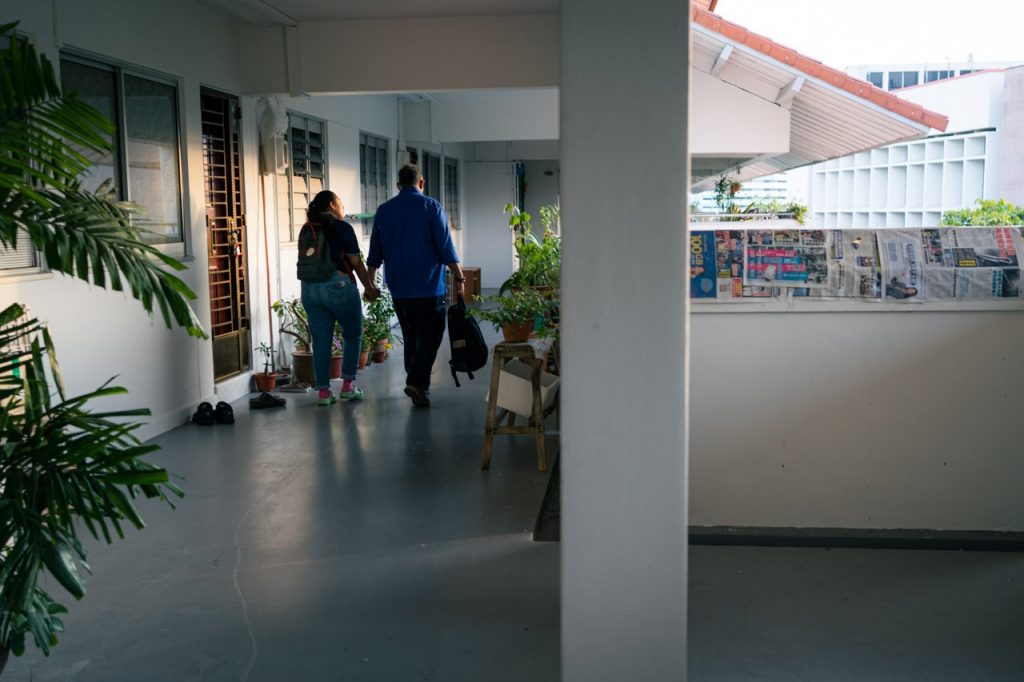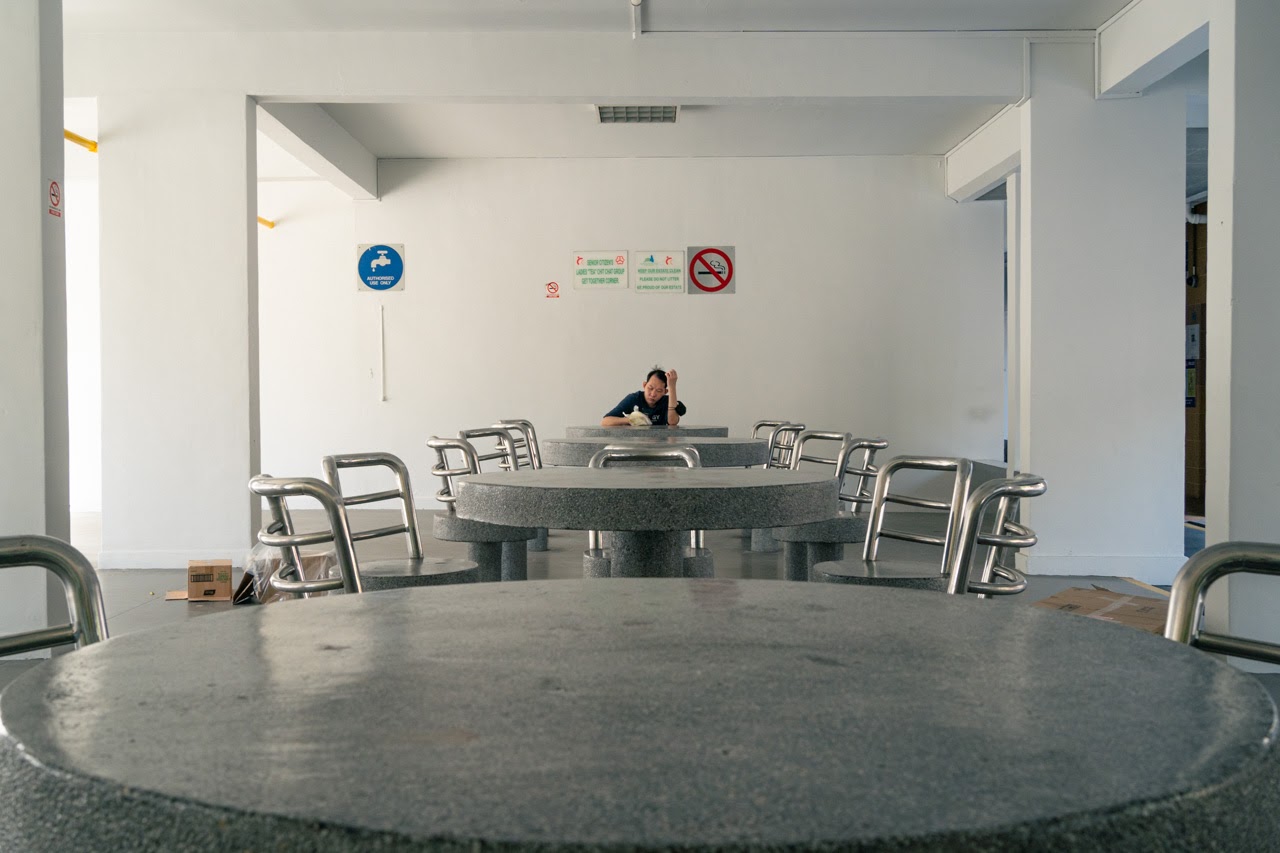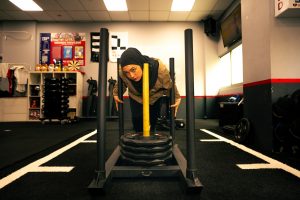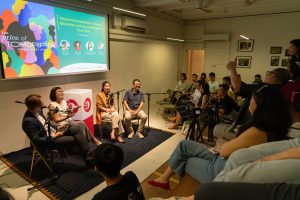Top image: Stephanie Lee / RICE File Photo
I went for my first house viewing recently with my partner. It was a four-room HDB flat along Jalan Tenteram that was way too far from anything else but was within our modest budget. (Housing prices these days, am I right?)
We paced around the house, armed with our list of questions 99.co told us to ask.
“This house gets plenty of wind,” the agent offered earnestly. We nodded, pretending to be highly invested in superb airflow.
The truth was, the place just felt pretty okay. Like all the ten other flats we’d shortlisted online.
Before the viewing, my partner’s mum had offered up some sage advice: “When it’s the right place, you’ll know.” Well, we still don’t know. Yet, I mean.
“By the way, how old are you guys?” the property agent asked, eyeing us suspiciously. Maybe it was the Fall Out Boy t-shirt and Crocs my partner turned up in. Or the smattering of pimples on my face that screamed, “Not old enough to buy a house”.
“We’re both 30 this year,” I answered. I saw a sigh of relief. Or maybe I was simply projecting.
The truth is, the whole time we’d been at the house, I’d felt like a child cosplaying an adult.
It almost felt wrong that if I so wished, I could blow a few hundred thousand dollars and call this place mine. I’m turning 30 in a month, and I’m about to be a homeowner—yet I still feel like I need my parents to sign a consent form before I make any big decisions. When we happen to be viewing homes at the same time as other young couples, I find myself wondering if they, too, feel like kids on the inside.
We hear a lot about impostor syndrome—or impostor phenomenon, the term preferred by its originators—in the workplace. But what about when it comes to milestones of adult life? Surely I’m not the only one who sometimes feels like a stack of toddlers disguised in a trench coat.
So, is there a solution? Or is there nothing to fix at all?

Confessions of a ‘Fake’ Adult
When I was in junior college, I thought I’d feel more like an adult when I enrolled in university. Uni came and went, and I thought I’d feel more like a ‘real’ adult when I got my first full-time job and started paying income tax.
I still don’t.
Don’t get me wrong—I have my Proper Adult moments. Like when I overhear groups of teenagers on the bus discussing holiday homework or when a primary school kid calls me ‘auntie’.
As my partner and I navigate home ownership, though, the feeling that I’m ‘faking’ competence popped up every step of the way, from the time we submitted the HDB Flat Eligibility (HFE) letter to all the times we’ve messaged property agents to set up viewings.
Psychology Today suggests that feeling like a child on the inside can have to do with unresolved doubts or fears rooted in childhood. But I’m not sure it’s something that needs to be pathologised. Rather, like impostor phenomenon, I think this feeling might be something most people go through at some point.
What I’m still unsure of is whether it eventually goes away.
Leslie Jameson writes in The New Yorker that impostor feelings often arise from threshold-crossing. She lists examples like crossing from one social class to another or one job to another. To put it simply, we’re all grappling with various versions of ourselves. When the gaps between these different selves grow too wide, negative feelings naturally take root.
But what does this have to do with feeling like a fraud as a full-grown Singaporean adult?
In the context of first-time house hunters, this might be reconciling the self that’s used to being told what to do by our parents and the self that suddenly has to make big decisions. Or the self that grew up with no assets to speak of and the self on the cusp of being a homeowner.
It probably also doesn’t help that most young people these days are on a completely different timeline than the one their parents subscribed to.

Does Adulthood Have a Deadline?
You’ve probably seen that TikTok trend where people create slideshows comparing their parents at a certain age and them at that same age. Most of the time, the parents were homeowners and already had kids by the time they were in their mid-twenties. The slideshow then cuts to a twenty-something-year-old barely-functioning adult who can barely manage their own expenses, much less start a family.
Were past generations just better at faking it? Or is this struggle to cope with adulthood unique to the younger generations of today?
A BBC article theorises that achieving ‘traditional’ life milestones like home ownership and having children is becoming increasingly out of reach for millennials and Gen Zs. As we delay or skip these things, our adulthood milestones are grounded in aspirational things like quitting toxic workplaces or pursuing passions.
Maybe that’s why when we finally get around to these ‘traditional’ milestones, it feels much more daunting. In terms of home ownership, it’s as if you’d have to go through a crash course in adulthood.
Renting isn’t the widespread norm in Singapore, so going from living with your parents to purchasing your own home feels like a massive leap without a buffer in between. I mean, at the ripe old age of 30, I haven’t even tasted complete independence yet.
But now, I’m faced with decisions that will likely affect me and my partner for decades: Where should we live? BTO or resale flat? How many rooms?

Maybe Faking It Is Okay
Since impostor syndrome was first identified and popularised over 50 years ago, it’s become evident that achieving success alone doesn’t resolve feelings of inadequacy. What may help is finding resonance with other ‘impostors’.
Honestly, one of the most comforting moments in my house-hunting journey was a viewing where the property agent was absolutely clueless at his job.
As 99.co suggested, I’d asked him about the neighbours, planned developments in the area, and the previous owner’s improvements to the house.
The agent, looking fresh out of university, replied with an uncertain “Uh, I’ll check” to practically all of my questions.
That was the moment I realised we were both faking it. He wasn’t even faking it particularly well, but at least he was trying his damn best to play the part. And, truthfully, isn’t that what we’re all really doing?






